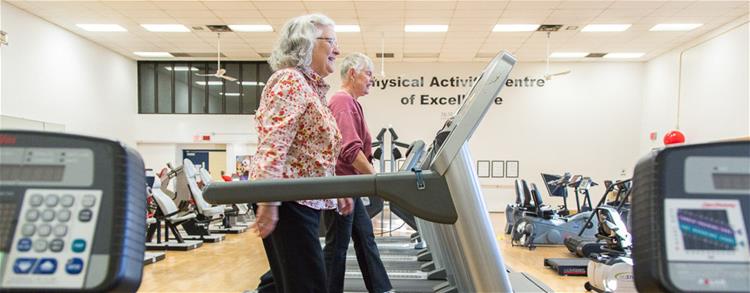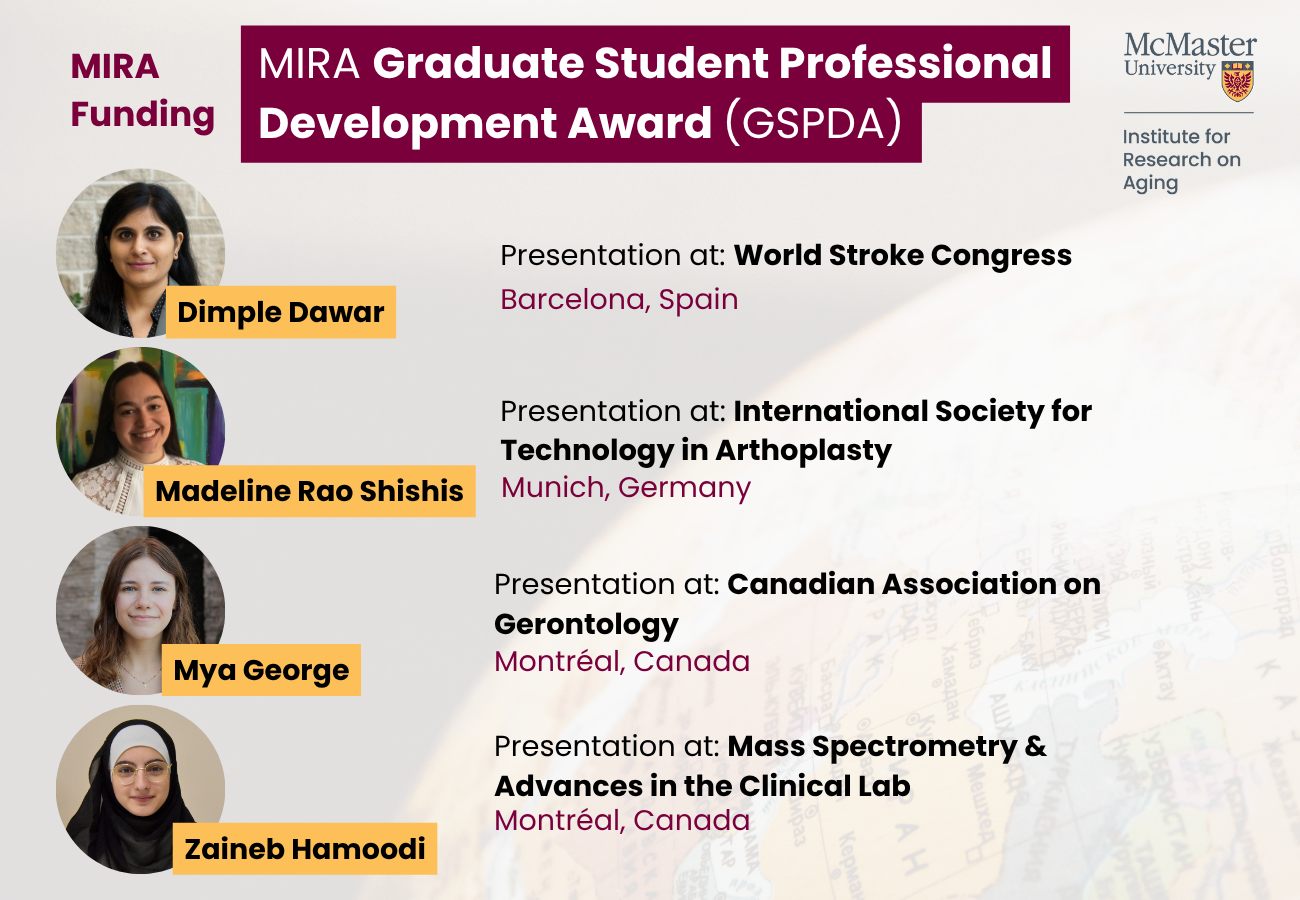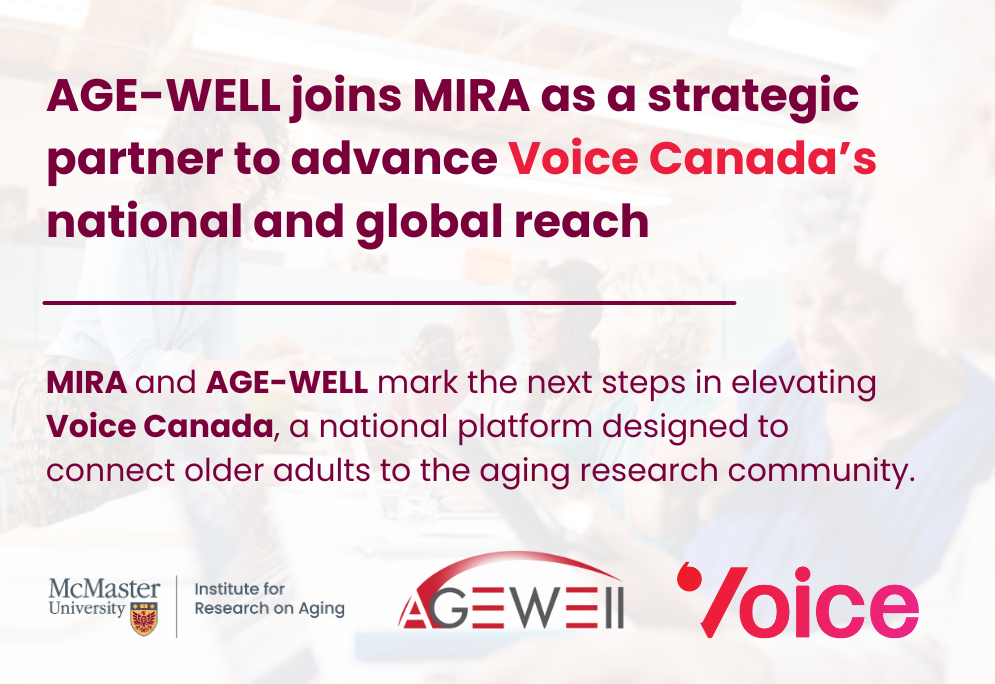
Published: October 4, 2018 | By Sydney Valentino

In the following MIRA Highlight of the Month, Sydney Valentino interviews Alexis Bullock, who is in her second year of her program Master’s and in the process of collecting a large amount of data to look at how the age-related cognitive decline can be altered by physical activity. Read on to hear more about one of the mechanisms of age-related inflammation and more anecdotally, the perspective she has gained by working with older adults.
Q: Why are you interested in the aging population?
A: As many of us know, there are currently more seniors than children living in Canada. I view this as a success and an opportunity for researchers and healthcare providers to help older adults live longer and healthier lives.
Q: Can you tell us about your research and how it relates to the aging population?
A: My research investigates how physical activity can be protective against age-related cognitive decline. As we age, our immune system becomes dysregulated, which results in increased levels of inflammation throughout the body. This heightened level of inflammation can have detrimental effects on brain health by damaging neurons and impairing signalling molecules that support neuronal growth and survival. The result of this age-related inflammation is impaired memory function and an increased risk for neurodegenerative diseases, such as dementia. However, physical activity is a modifiable lifestyle factor that can reduce inflammation and may be capable of preventing cognitive decline. Thus, the purpose of my Master’s research is to examine the association between physical activity and cognitive function in older adults, as well as to investigate the role of inflammation and other signalling molecules that support brain health in this relationship.
Q: What brought you to be part of the MIRA trainee network?
A: I first heard about MIRA through a previous graduate student in our lab who was also conducting age-related research. I loved the idea of an interdisciplinary network of trainees who were all working towards achieving the same goal: improving the quality of life of our ever-growing aging population. MIRA is a great way to hear about other age-related research going on at McMaster and provides excellent collaboration opportunities for graduate students.
Q: What were some of the highlights of working with older adults in your field?
A: I thoroughly enjoy working with older adults. Each and every participant has a genuine interest in the research we are doing. They are eager to learn more about the measures we are collecting and are so excited to be contributing to the world of research. I love getting to know my participants and having conversations about their interests and hobbies. It makes research so much more fun.
Q: You talked a lot about age-related inflammation, at what age do people start experiencing this?
A: There are several processes that contribute to age-related inflammation, so there isn’t an exact age that it all begins. One of the mechanisms that play a part in this is thymic involution, which is the shrinkage of our thymus, a lymphoid organ where T cells mature, with advancing age. Thymic involution begins in early adulthood and accelerates after the age of 40. However, this is just one example of the changes that occur to our immune system as we get older. These processes occur gradually throughout our lives, but many of them appear to be improved by physical activity, which again is quite exciting!
Q: Is there a certain kind of exercise that is better for preventing cognitive decline? And is there a different kind of exercise that I should do vs. What I should tell my grandma to do to keep our brains in top shape?
A: The majority of work that has been done in this field has focused on aerobic exercise, such as walking or cycling. These studies have demonstrated that aerobic exercise is effective at enhancing cognitive function in both young and older adults. However, recent evidence suggests that other types of exercise, such as resistance training, may also be beneficial for improving cognition. There is still a lot of work to be done to understand the many variables that influence this relationship between exercise and brain health, including exercise type, duration, and intensity, but the take home message from the research in this field is that exercise is a promising lifestyle intervention for preventing age-related cognitive decline, which is quite exciting!
Q: What is the most surprising thing that you have learned by interacting with your participants?
A: Definitely the amazing lives these older adults live! I am so inspired by them. I have participants who are over 65 years of age who are travelling the world, participating in the Ride to Conquer Cancer, doing CrossFit… its incredible. It has reinforced the idea that if we can provide people with the knowledge and the resources required for healthy aging, we can transform the experience of aging.
Q: How can this knowledge be applied an have real-world impact?
A: This research will elucidate the mechanisms by which exercise is capable of slowing age-related cognitive decline. Importantly, by investigating these underlying mechanisms, it may be possible to optimize exercise interventions and establish physical activity as a primary prescription for maintaining cognitive function in old age.
There is so much we can learn from the research going on at McMaster University, with many different fields of research under the aging umbrella. Thank you for reading our first Trainee Research Profile. If you have an interest in Alexis’ work, feel free to contact her at bulloam@mcmaster.ca
This blog post was first published by the MIRA Trainee Network. Read the ​original article.​

